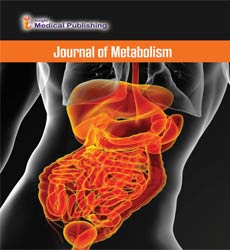Could Pulmonary Hypertension Be the Cause of Renalase Insufficiency?
1Department of Cardiovascular Surgery, Heath Science University, Elazig Research and Education Hospital, Elazig, 23119, Turkey
2Department of Internal Medicine (Endocrinology and Metabolic Diseases), Faculty of Medicine, Firat University, Elazig, 23119, Turkey
3Department of Medical Biochemistry (Firat Hormones Research Group), Faculty of Medicine, Firat University, Elazig, 23119, Turkey
- Corresponding Author:
- Prof. Dr. Suleyman Aydin
Firat University, School of Medicine
Department of Medical Biochemistry (Firat Hormones Research Group)
23119-Elazig, Turkey
Tel: 90 5334934643
E-mail: saydin1@hotmail.com
Received Date: October 25, 2017; Accepted Date: October 27, 2017; Published Date: October 30, 2017
Citation: Aydin S, Ugur K, Aydin S. (2017) Could Pulmonary Hypertension Be the Cause of Renalase Insufficiency? IPMB Vol. 1 No 1: 2.
Copyright: © 2017 Aydin S, et al. This is an open-access article distributed under the terms of the Creative Commons Attribution License, which permits unrestricted use, distribution, and reproduction in any medium, provided the original author and source are credited.
Abstract
Editorial
Pulmonary hypertension is a serious, progressive and lifethreatening disease associated with increased blood pressure in cardiac patients, defined as >25 mmHg and Effort >30 mmHg, while the pulmonary artery mean pressure is normally 14 mmHg [1]. This hypertension associated with interstitial lung disease recognized and is frequently associated with substantial morbidity and mortality. Congestive heart failure, other heart diseases, birth defects of the heart, chronic lung disease, obstructive sleep apnea, and certain autoimmune disease (for example, rheumatoid arthritis) cause pulmonary hypertension. The right heart failure and sudden death were directing a cause of death of pulmonary hypertension [2]. This hypertension is also more common among women, non-Hispanic blacks, and its risk increases in older patients aged 75 or older.
It has been recently showed that the prototype of selective pulmonary vasodilator - Nitric Oxide (NO) is currently the most effective option in the management of this hypertension. There is a direct connection between the amount of circulating dopamine and epinephrine as well as norepinephrine. The nerves around the kidney veins cause extreme adrenaline secretion from the kidneys, causing hypertension. Prevention of excessive adrenalin secretion using the renal denervation method partially or completely prevents hypertension. The mechanism underlying pulmonary hypertension is not known but it may be linked with renalase.
Renalase, first discovered in 2005, is a flavin/adenine/ dinucleotide-dependent amine oxidase [3] that is primarily synthesized from the kidneys and other biological tissues such as heart, intestine, liver, skeletal muscle, endothelium and brain and is secreted into the blood and urine [4,5]. Circulated normal concentration of renalase is approximately 3–5 μg/mL [6]. Its levels are regulated by at least three factors: renal function, renal perfusion and catecholamine (dopamine, epinephrine and norepinephrine) levels. It has been reported that renalase reduces blood pressure and heart rate and protects cells and organs against ischaemic and toxic injury, states, including cardiac injury and acute pancreatitis by modulating calcium transport.
Over all given information above this article hypothesized that dopamine as well as epinephrine- and norepinephrinemetabolizing renalase [3,7,8] may be linked to pulmonary hypertension as that described below. Since the main function of renalase in biological systems is metabolization of epinephrine and norepinephrine to 3-methoxy-4- hydroxymandelic acid (VMA) and dopamine to homovanilic acid. Failure of these cathacolamines to metabolize to their final metabolites may cause headache, vomiting, nausea, dizziness and especially hypertension. Therefore, renalase enzyme quantities below physiological concentrations may cause pulmonary hypertension, and there may be an association between renalase and pulmonary hypertension. Even though now there is no exactly cure for pulmonary hypertension [2]. However, renalase treatment in case of pulmonary hypertension might be also another option in place of pulmonary vasodilators (such as NO) in the future. Diagnosis of pulmonary hypertension is also currently difficult until the last stage of the disease, and measurement of renal enzymes in these patients may help diagnose pulmonary hypertension. Briefly, pulmonary hypertension is a rare, lethal disease that occurs in isolation or in association with myriad diseases [2], and so that measurement of renalase might help to monitor treatment response and progression of disease in the future.
References
- Naeije R, Gerges M, Vachiery JL, Caravita S, Gerges C, et al. (2017) Hemodynamic Phenotyping of Pulmonary Hypertension in Left Heart Failure. Circ Heart Fail 10(9): e004082.
- Tonelli AR, Arelli V, Minai OA, Newman J, Bair N, et al. (2013) Causes and circumstances of death in pulmonary arterial hypertension. Am J Respir Crit Care Med 188(3): 365-369.
- Xu J, Li G, Wang P, Velazquez H, Yao X, et al. (2005) Renalase is a novel, soluble monoamine oxidase that regulates cardiac function and bloodpressure. J Clin Invest 115(5): 1275-1280.
- Desir GV, Wang L, Peixoto AJ (2012)Human renalase: a review of its biology, function, and implications for hypertension. J Am Soc Hypertens6(6):417-426.
- Wang F, Xing T, Li J, Bai M, Hu R, et al. (2012) Renalase's expression and distribution in renal tissue and cells. PLoS One7(10):e46442.
- Wang Y, Safirstein R, Velazquez H, Guo XJ, Hollander L, et al . (2017)Extracellular renalase protects cells and organs by outside-in signalling. J Cell Mol Med21(7):1260-1265.
- Aydin S (2017) Can cerebellin and renalase measurements contribute to the elimination of false positive results in pheochromocytoma and paraganglioma diagnoses? Medical Hypotheses 107:64.
- Aydin S, Aydin S (2017)Can Strict Control of Renalase Present a New Treatment Alternative in Regulating Blood Pressure? Journal of Cardiovascular Medicine and Cardiology 4(1): 008-009.
Open Access Journals
- Aquaculture & Veterinary Science
- Chemistry & Chemical Sciences
- Clinical Sciences
- Engineering
- General Science
- Genetics & Molecular Biology
- Health Care & Nursing
- Immunology & Microbiology
- Materials Science
- Mathematics & Physics
- Medical Sciences
- Neurology & Psychiatry
- Oncology & Cancer Science
- Pharmaceutical Sciences
